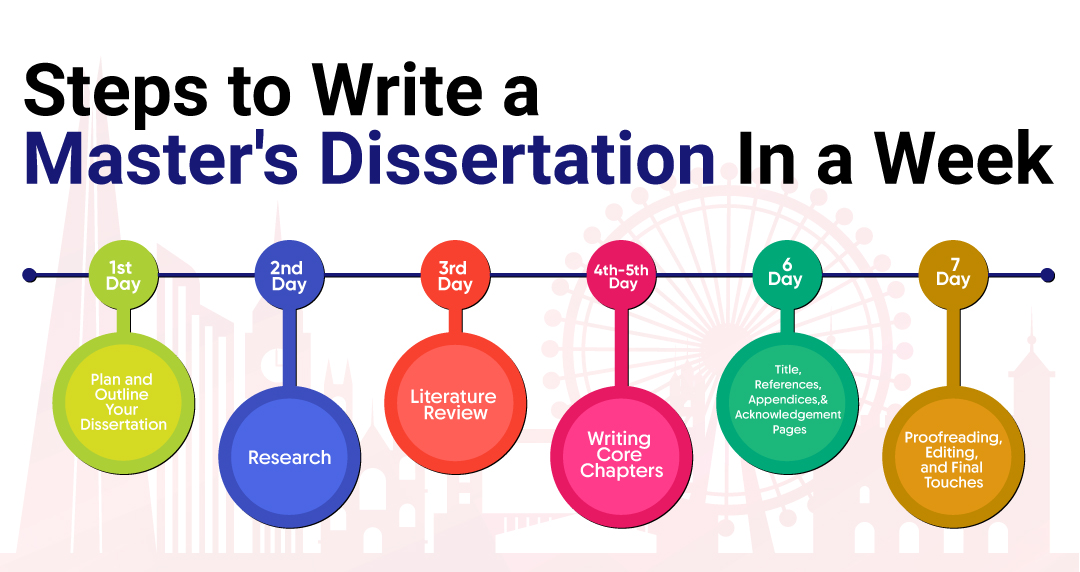Common Dissertation Mistakes and How to Avoid Them

Understanding the Importance of a Dissertation
A dissertation is one of the most critical components of academic research. It showcases a student’s ability to conduct independent research, analyze information critically, and present findings in a structured manner. However, many students face challenges during this process, often making mistakes that impact the quality of their work. This guide highlights common dissertation mistakes and practical ways to avoid them.
Choosing an Overly Broad or Narrow Topic
One of the most frequent mistakes students make is selecting a dissertation topic that is either too broad or too narrow. A broad topic may lead to excessive information, making it difficult to focus, while a narrow topic can restrict the availability of research material.
How to Avoid This Mistake:
- Choose a topic with a clear research scope.
- Conduct preliminary research to ensure sufficient academic material is available.
- Discuss potential topics with your academic supervisor to refine your focus.
Lack of a Clear Research Question
A well-defined research question guides the dissertation process. Many students start with vague research questions, making it challenging to develop a coherent argument and structure.
How to Avoid This Mistake:
- Formulate a specific and researchable question.
- Ensure the question aligns with existing academic discussions.
- Avoid overly complex or simplistic questions that may lead to ambiguous findings.
Poor Planning and Time Management
Dissertations require extensive research, writing, and revisions. Many students underestimate the time needed, resulting in rushed work that affects quality.
How to Avoid This Mistake:
- Create a realistic timeline with milestones for each phase of research and writing.
- Set weekly or monthly goals to track progress.
- Allocate extra time for proofreading and editing before submission.
Weak Literature Review
A literature review establishes the foundation of your research. Some students fail to conduct a thorough review, leading to gaps in understanding and weaker arguments.
How to Avoid This Mistake:
- Read extensively from credible sources, including journal articles, books, and reports.
- Organize literature systematically based on themes or trends.
- Critically analyze existing research rather than just summarizing it.
Inadequate Research Methodology
Using an inappropriate research methodology can undermine the validity of findings. Some students choose methods without fully understanding their suitability for the research question.
How to Avoid This Mistake:
- Understand qualitative, quantitative, and mixed-method approaches before selecting one.
- Justify the chosen methodology with academic reasoning.
- Consider potential limitations and ways to mitigate them.
Plagiarism and Poor Citation Practices
Plagiarism is a serious academic offense. Many students unintentionally commit plagiarism by failing to cite sources correctly or relying too much on direct quotations.
How to Avoid This Mistake:
- Use citation management tools like Zotero or EndNote.
- Follow the required citation style (APA, MLA, Harvard, etc.).
- Paraphrase effectively while maintaining the original meaning of the text.
Weak Argumentation and Lack of Critical Analysis
A dissertation should not be a mere collection of facts but a well-argued piece of research. Many students struggle with presenting a logical flow of ideas and critical analysis.
How to Avoid This Mistake:
- Support arguments with relevant theories, models, and empirical data.
- Avoid descriptive writing; instead, analyze and interpret findings.
- Use counterarguments to strengthen your perspective.
Ignoring Formatting and Presentation Guidelines
Universities provide specific formatting guidelines, including font size, spacing, and structure. Neglecting these details can result in marks being deducted.
How to Avoid This Mistake:
- Read and follow university formatting guidelines meticulously.
- Use templates provided by academic institutions.
- Ensure consistency in headings, subheadings, and referencing style.
Lack of Proofreading and Editing
Many students submit dissertations with grammatical errors, typos, and unclear sentences, reducing readability and professionalism.
How to Avoid This Mistake:
- Proofread multiple times or seek professional editing services.
- Use grammar-checking tools like Grammarly.
- Read the dissertation aloud to catch awkward phrasing and inconsistencies.
Failing to Follow Ethical Research Practices
Ethical considerations, such as participant confidentiality and informed consent, are crucial in academic research. Ignoring these aspects can invalidate findings and lead to ethical violations.
How to Avoid This Mistake:
- Obtain necessary ethical approvals before conducting research.
- Ensure participants’ data is handled with confidentiality.
- Adhere to institutional guidelines for ethical research practices.
Neglecting Feedback from Supervisors
Supervisors provide valuable insights that can significantly improve dissertation quality. Some students either disregard feedback or fail to seek timely guidance.
How to Avoid This Mistake:
- Schedule regular meetings with your supervisor.
- Take notes during feedback sessions and implement suggestions.
- Be open to constructive criticism to enhance research depth and clarity.
Overloading the Dissertation with Excessive Information
Including too much information can make a dissertation difficult to follow. Some students struggle to filter out less relevant data, leading to an unstructured document.
How to Avoid This Mistake:
- Focus on quality rather than quantity.
- Stick to the research objectives and discard unnecessary data.
- Maintain a logical flow between sections to ensure clarity.
Inconsistent Writing Style
A dissertation should have a formal and consistent tone. Some students switch between informal and formal writing, affecting readability and academic credibility.
How to Avoid This Mistake:
- Maintain an academic tone throughout the dissertation.
- Avoid jargon unless necessary and define technical terms clearly.
- Use a structured approach to writing, with clear introductions and conclusions.
Conclusion
Writing a dissertation is a demanding but rewarding academic task. By being aware of common mistakes and taking proactive steps to avoid them, students can enhance the quality of their work. Careful planning, thorough research, and consistent writing will ensure a well-structured and credible dissertation.
For students who require additional academic support, Do My Assignment in UK and Dissertation help in UK services offer professional guidance to navigate the challenges of academic writing effectively.







